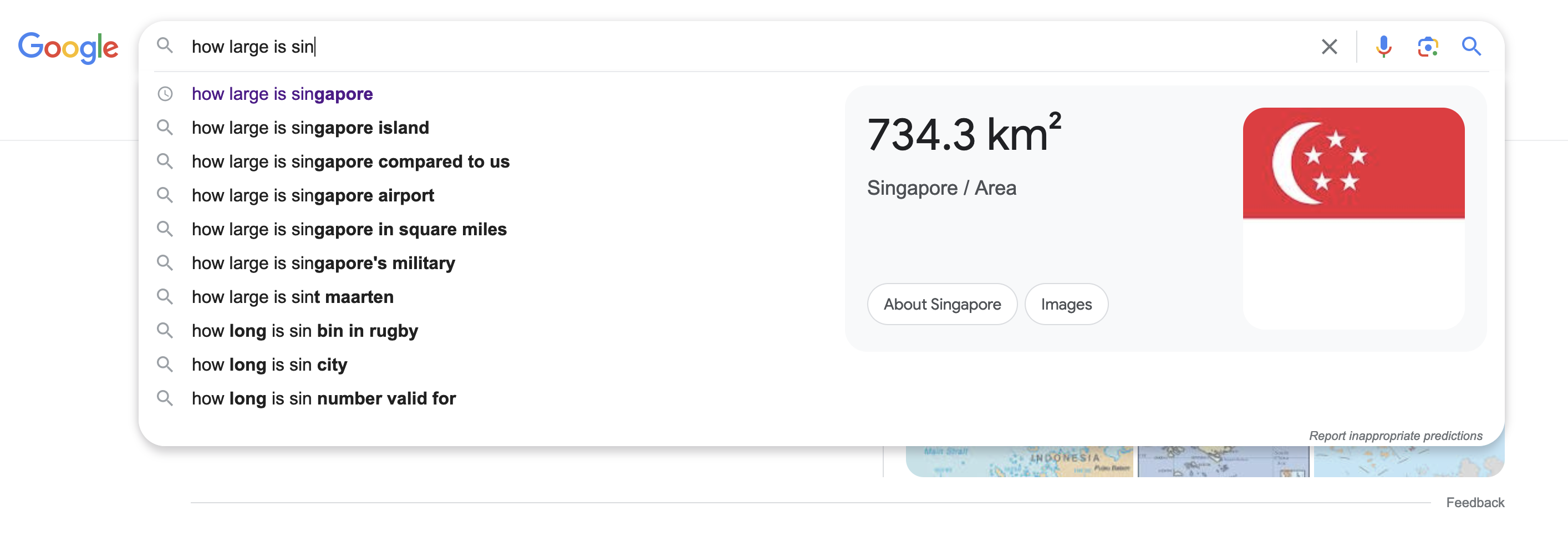This isn’t some magical future – it’s happening now. For basic facts, weather forecasts, or even simple math problems, just like when I ask how large is Sin… at the Google search prompt, Google might just spit out the answer right there. It’s like having a super-powered research assistant reading your mind and whispering knowledge in your ear.
The impact of zero-click search include less website traffic because traditionally marketers relied on users clicking through search results to reach their websites. With answers directly on search pages, that traffic can dry up, impacting brand awareness and conversions. It becomes harder to track how users find your brand. Google will further integrate AI into its search engine result page. The impact on SEO performance might result with a decline of the clickthrough rate by well over 50%. This seems to be unavoidable if the search engine users get the answer on Google, it’s not reflected as a website visit, making it difficult to measure the effectiveness of marketing campaigns. And then it also give less visibility of your content because the valuable content you’ve created might not be seen if users get the gist from Google’s summary. This reduces the impact of your brand’s expertise and unique offerings.
- Optimizing for Featured Snippets: Aim to get your content featured in the answer box that appears directly on search results.
- Focusing on Rich Content: Create informative and engaging content that goes beyond what a quick summary can offer.
- Building Brand Awareness: Employ other marketing channels to build brand recognition, so even if users don’t click through, they’re familiar with your brand.
Related Posts
Think No-Code is ‘Tech-Free’? Think Again.
Picture this: You're sitting on a beach, sipping a piña colada, and building a wesbite with just a few clicks and drags. No coding, no fuss, just pure tech-free bliss.
The Hidden Psychology in Web Design
When designing a website, understanding how users interact with your content is crucial. This insight can be traced back to the field of psychology, specifically the study of eye movements and visual perception. By leveraging these principles, you can create more effective and engaging web designs.
Are You a Chimp with Data or a Human with AI?
In the digital marketing landscape, the distinction between being "smart" and "knowledgeable" is crucial. Much like the nuanced genetic difference between chimpanzees and humans, where a slight variation led to humans' advanced development, knowledge in marketing refers to data and information, while being smart involves strategic application of that knowledge.




